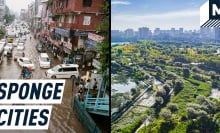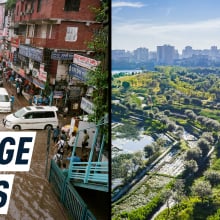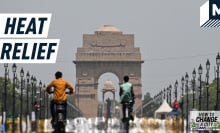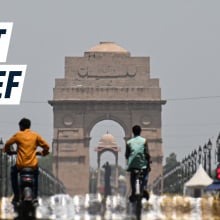The way we build our cities turns them into unbearable heat-trapping greenhouses — a phenomenon known as the urban heat island effect. As global temperatures rise, some cities could become unliveable unless we learn how to cool them sustainably. Mashable's How to Change a City series dedicates three of its episodes to this issue, exploring how cities can sustainably combat the urban heat island effect.
British architecture has historically been designed to deal with cold and wet weather conditions. Heat-resilient strategies like efficient cross ventilation, external shading, or sun reflection techniques have simply never been needed in the UK. But as the climate crisis accelerates, the country's weather patterns have been changing, and heatwaves are now a serious concern for both people, biodiversity, and infrastructure. Summer 2022 was the hottest ever recorded in the UK, and although 2023 has been rather cold and rainy, so far avoiding the extreme heat recorded across Europe, when it comes to climate change, what matters is the overall tendency.
The so-called urban heat island effect makes hot summers especially unbearable in cities all around the world. The excess heat coming from street traffic or commercial businesses, among others, is then trapped between lofty buildings usually comprised of glass and cement. The result? Temperatures in urban environments are often a few degrees warmer than those of the surrounding countryside.
But it doesn't have to be this way. To find out how the UK can make its cities more resilient to extreme heat, Mashable spoke to Marialena Nikolopoulou, a professor of sustainable architecture at the University of Kent and Will Cavendish, a global digital services leader at Arup who shared their expertise on building resilient cities.
Topics Social Good Sustainability Innovations








